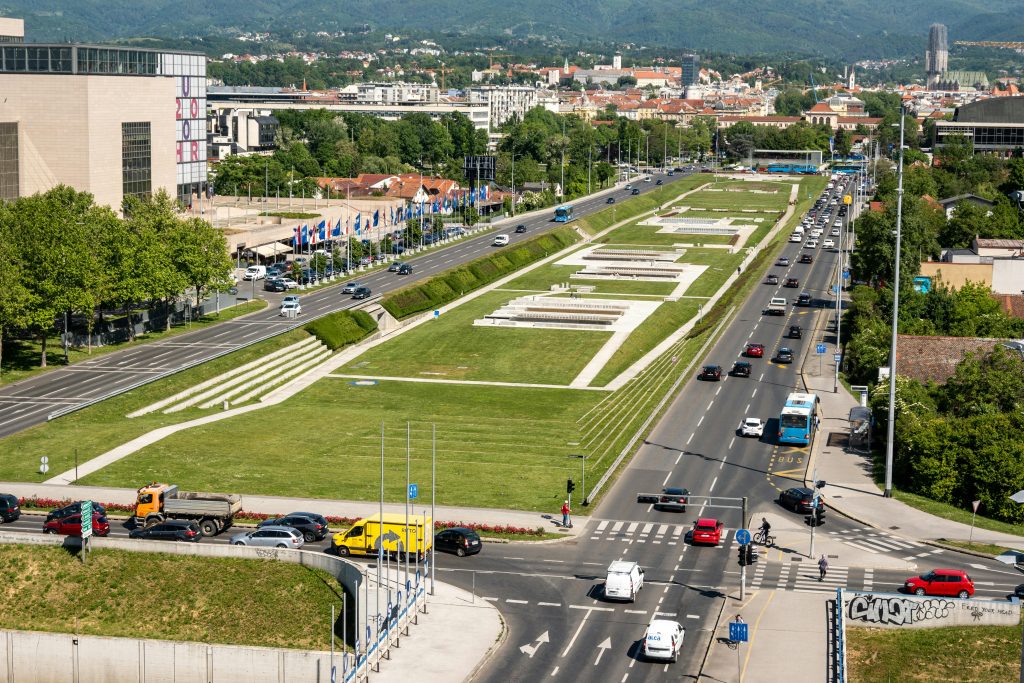October the 9th, 2024 – Foreign investment in Croatia is continuing to be promising according to the American Chamber of Commerce in Croatia (AmCham) and Croatian National Bank (CNB) data.
As Poslovni Dnevnik/Josipa Ban writes, foreign investment in Croatia continues to do well according to Josip Funda, Chief Economist of the World Bank in Croatia at the conference of the American Chamber of Commerce in Croatia (AmCham). The conference was dedicated to the topic of the impact of foreign direct investment (FDI) on competitiveness.
That foreign investment in Croatia is doing well is also shown by the data of the Croatian National Bank. According to that data for 2024, with slightly more than one billion euros of foreign investments in the first quarter, this year could be a record year and exceed 2021.
Back during that time, slightly less than four billion euros were invested in Croatia. Although investors at the global level tend to show caution when investing, which will be reflected in the amounts invested in Croatia, certain trends could work in the country’s favour.
Deglobalisation and foreign investment in croatia
“A positive influence on foreign investment in Croatia (direct investment) could have a trend of deglobalisation of the processing industry. That is now slowly returning from more distant markets. In addition, the coronavirus crisis and geopolitical tensions have led to a trend of increasing investments towards geo-politically close countries,” explained Funda.
In general, geopolitics is becoming a dominant factor in foreign direct investment, which is good for Croatia. However, the fact that on a global level, investments in the manufacturing sector are decreasing and increasing in the service sector is not helping much.
In terms of this, the sectoral structure of investments, Croatia is otherwise in a less than favourable position. So far, namely, most foreign investment in Croatia has gone to the financial sector (banks), property, wholesale and retail trade, that is, to sectors that don’t create a greater “spillover” effect on the rest of the economy.
“The share of the manufacturing industry in foreign direct investments from 2018 to 2020 in Croatia is about 10 percent, and in the Czech Republic, Slovenia, Poland, Hungary, it’s over 25 percent,” Funda warned, noting that in addition to attracting investments in more productive sectors, Croatia must work harder to create a stimulating business environment. “We are seeing positive developments, but there’s still room for improvement, especially in the area of regulatory stability and legal certainty,” Funda believes.
the labour force issue could be helped with productive sector-directed investments
The chief economist of the World Bank in Croatia believes that Croatia wouldn’t feel its burning labour force problem as much if it directed investments to more productive sectors. Goran Romek, State Secretary in the Ministry of Economy predicts that the lack of them will be among the biggest drawbacks in attracting investments.
Romek didn’t want to reveal what kind of policy the state intends to implement in this regard through the National Investment Promotion Plan. He only stated that the industrial development plan will be adopted by the end of this year or the beginning of next year. Of the more concrete steps, it was only heard that the state’s plan is to involve local self-government units more directly in attracting and facilitating investments.
“We plan to connect local self-government units with that at the state level through an online system through which local units will be able to report when a certain business expresses interest in investing,” said Romek from the round table.
Miroslav Holjevac, president of the management of Zagrebačka pivovara, which is part of Molson Coors, and Ivić Vodopija, director of Maersk for Eastern Europe, also spoke about the importance of investment. Holjevac, whose company continuously invests, says that without investments there’s no survival, let alone competitiveness. Vodopija from Maersk, the company that is working on the construction of the container terminal in Rijeka, says that Croatia was attractive to the Danish investor, among other things, because of its position.
the croatian adriatic as europe’s top supply chain?
“We believe that the Adriatic should be the main supply chain for the whole of Europe,” pointed out Vodopija, adding that predictability is the most important thing for Maersk when it comes to investment. Accordingly, they would benefit from predictability in the construction of the railway infrastructure across Croatia (which is crucial for transporting goods from the coast to the continent), but they can’t count on that yet.
Andrea Doko Jelušić, executive director of AmCham, confirmed that, despite this, there’s visible progress in attracting foreign investment in Croatia. She revealed that 80 percent of their members plan to expand their businesses in Croatia over the next three years.










